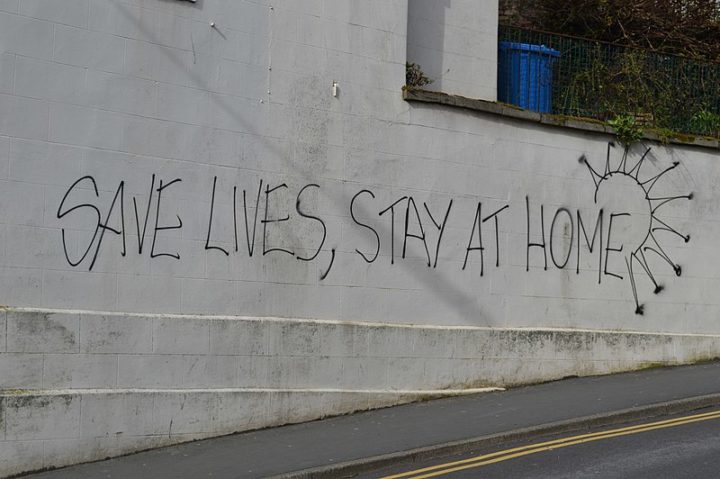Jennifer Bell
A year into the coronavirus pandemic, and some remote parts of the world remain in some of the strictest lockdowns to curb the spread of the virus, according to the Government Response Stringency Index developed at Oxford University.
The platform contains data for more than 180 countries, and bases its scores on 20 different lockdown indicators, including school closures, social restrictions and travel bans.
The stringency index also takes into account economic support measures by governments, while testing and vaccination policies also play a role. The lower a country’s score, the less strict the measures are.
Here is a snapshot of some of the strictest – and most relaxed – lockdown measures across the globe.
Eritrea
In North East Africa, the country of Eritrea has placed some of world’s strictest measures to curb the coronavirus. Since April 1, 2020, the country, home to about 6.3 million people, has been under total lockdown.
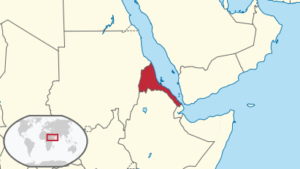
Eritrea in its region / This file is licensed under the Creative Commons Attribution-Share Alike 3.0 Unported
According to the index, schools are closed, only essential workplaces are open and all public transport has ceased. In December the country banned the use of private cars and “other individual means of transportation,” without a permit. All borders remain shut and there are restrictions on gatherings of more than 11 people.
Police and neighborhood watch groups enforce the rules, and residents have been warned additional restrictions are possible.
Lebanon
Lebanon also has one of the highest lockdown measures, with public events canceled, strict stay-at-home measures, and even permits required to go to the supermarket.
Restrictions are in place to prevent group gatherings, and work-from-home measures remain in place for some sectors.
Lebanon has now received its first batch of coronavirus vaccines, ahead of a nationwide campaign to start vaccinations in the Mediterranean country. It has seen a sharp rise in cases and fatalities in recent weeks.
Venezuela
On the northern coast of South America, Venezuela – home to about 28.5 million people – also has some of the highest lockdown measure in place.
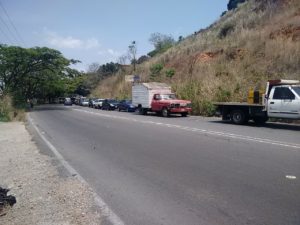
Gasoline queue during COVID-19 in Miranda, Venezuela / User:Oscar / CC BY-SA 4.0
All schools – from primary to higher education – remain closed and all workplaces not deemed essential are shut. Public events also remain canceled and stay-at home measures are firmly in case, with only strict exceptions permitted.
Battered by years of economic crisis, the country’s President Nicolas Maduro ordered a national quarantine days after the first cases of COVID-19 were recorded last March.
The nation is currently preparing to kick off vaccinations with the Sputnik V vaccine.
UK
Despite easing some lockdown measures, extensive restrictions are still enforced in Britain.
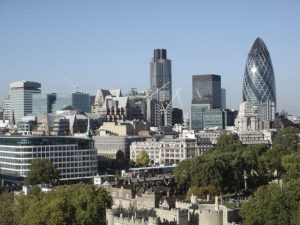
City of London / This work has been released into the public domain by its author, Mewiki. This applies worldwide.
In November, the UK entered its second lockdown amid fears its public health service would cripple with further infection waves.
A stay-at-home order, and the closure of all non-essential shops are in place. Many people continue to work from home, while schools remain closed.
There are some exceptions to the rule. People are allowed to leave their homes to exercise outdoors alone, or with one other person outside their household.
This week, Prime Minister Boris Johnson unveiled a plan to ease the lockdown in England by June 21, if “strict conditions” are met.
The UK has recorded some of the highest confirmed rates of infections and deaths in the world. To date, more than 4.1 million cases, including more than 120,000 deaths, have been reported since the start of the pandemic.
Tanzania
Not all countries have chosen to enforce lockdown measures. According to the index, Tanzania has some of the most relaxed measures in place; an approach which has drawn worldwide concern from health chiefs.
According to the index, while schools have ‘recommendations’ in lace to close, this is not enforced. Public events, workplaces, and public transport all remain open.
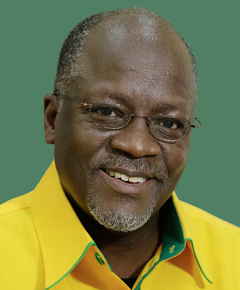
John Magufuli, President of Tanzania / / CC BY-SA 2.0
There are no restriction on movement or travel or stay-at-home requirements.
However, the relaxed rule strategy is changing.
This week, Tanzania’s president finally acknowledged that his country has a coronavirus problem after claiming for months that the disease had been defeated by prayer.
Populist President John Magufuli on Sunday urged citizens of the East African country to take precautions and even wear face masks — but only locally made ones. Over the course of the pandemic he has expressed wariness about foreign-made goods, including COVID-19 vaccines.
Tanzania has not updated its number of coronavirus infections since April.
The director-general of the World Health Organization, Tedros Adhanom Ghebreyesus, has added his voice to growing calls for Tanzania to acknowledge COVID-19 for the good of its citizens, neighboring countries, and the world, especially after a number of countries reported that visitors arriving from Tanzania tested positive for the virus.


